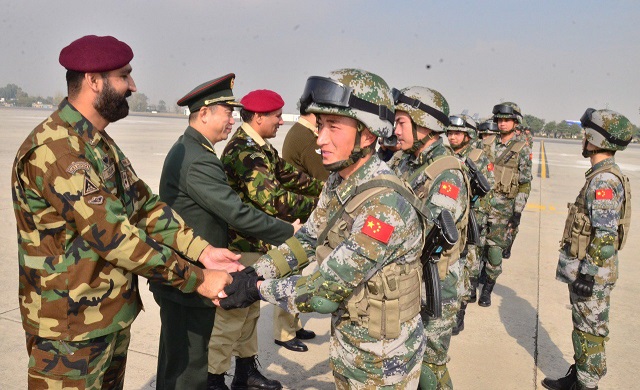
China's Leadership in Global AI Governance
From July 26 to 28, 2025, China successfully hosted the World Artificial Intelligence Conference (WAIC) and the High-Level Meeting on Global AI Governance in Shanghai. The event attracted global attention as Chinese Premier Li Qiang participated in the opening ceremony and delivered a significant speech. One of the key highlights of the conference was the release of the Global AI Governance Action Plan, which outlines 13 practical measures aimed at advancing AI development while ensuring safety, security, and control. The plan emphasizes respect for national sovereignty, fairness, and inclusiveness, calling for international collaboration and joint governance in the field of artificial intelligence.
As a core driver of a new wave of scientific and technological revolution and industrial transformation, AI is reshaping the global economic landscape and social structures. While AI presents unprecedented opportunities for development, it also brings significant risks and challenges. The Chinese government has consistently prioritized the healthy development and governance of AI. In 2023, President Xi Jinping proposed the Global AI Governance Initiative, providing a blueprint and guidance for global AI governance. The release of the Action Plan in Shanghai marks another important contribution by China to global AI governance, establishing a comprehensive framework that spans philosophy, institutional mechanisms, and practical pathways. It addresses current fragmentation in global AI governance and offers China’s wisdom in shaping a new paradigm for governance in the AI era.
The six fundamental principles outlined in the Action Plan—AI for good and in service of humanity, respect for national sovereignty, aligning with development goals, ensuring safety and controllability, upholding fairness and inclusiveness, and fostering open cooperation—reflect a shift from a technology-centric to a development-centric approach. This aims to bridge the digital divide and foster inclusive development, aligning closely with the aspirations of developing countries.
Pakistan's Alignment with China's Vision
Notably, Pakistan recently unveiled its National AI Policy 2025, demonstrating remarkable consistency with China's Action Plan in both philosophy and practice. This reflects not only global trends in AI development but also the shared aspirations of developing countries in the digital age. Pakistan's AI policy is built on six pillars: fostering an innovation ecosystem, talent development, security governance, industrial transformation, infrastructure upgrading, and international cooperation, with a view to achieving 'digital sovereignty.'
In terms of governance philosophy, Pakistan emphasizes ethical frameworks, data sovereignty, and transparent governance, resonating with China's principle of 'safety and controllability.' In infrastructure development, Pakistan plans to establish high-performance computing clusters and large language models, complementing the Chinese Action Plan's call to improve digital infrastructure layout and promote a unified computing power standard system. In talent cultivation, China's proposal to strengthen international cooperation on AI capacity-building provides strong support for Pakistan's strategy to nurture AI professionals.
Pakistan's focus on applying AI in agriculture, healthcare, and climate resilience highlights the shared people-centered development philosophy of both countries. Currently, China-Pakistan cooperation in AI has already yielded positive outcomes. The China-Pakistan AI Smart Agriculture Laboratory is leveraging AI technologies to help farmers in Faisalabad monitor crops and improve yields, while Chinese tech giant Huawei is assisting Pakistan in training 200,000 IT professionals, laying a solid foundation for bilateral AI collaboration.
Strengthening China-Pakistan AI Cooperation
The Joint Statement between China and Pakistan specifically expresses a commitment to enhance cooperation on information technology and promote policy and talent exchanges in emerging areas such as artificial intelligence, big data, and communication technology. Looking ahead, China and Pakistan enjoy a bright prospect for AI cooperation. Both nations are ready to work together to implement the consensus reached by their leaders.
First, they aim to strengthen policy coordination and standards alignment, jointly exploring AI governance models suited to each country's conditions. Second, they plan to advance technological research cooperation, particularly in applying AI to livelihood sectors such as agriculture, healthcare, and education. Third, they will promote talent exchanges and capacity-building to cultivate professionals well-equipped for the intelligent era. Fourth, they intend to deepen cooperation on data security and ethical governance, ensuring that AI development progresses in the right direction.
Moving forward, China plans to establish a World AI Cooperation Organization to further unleash the dividends of AI, bridge the AI divide, and ensure AI for good. This initiative will contribute wisdom and strength to a new international AI governance system.
A Bright Future for China-Pakistan AI Collaboration
I am confident that through the joint efforts of both sides, China-Pakistan AI cooperation will yield more fruitful outcomes, becoming a new testament of building the upgraded version of the China-Pakistan Economic Corridor (CPEC), particularly on the 'Innovation Corridor.' As all-weather strategic cooperative partners, China and Pakistan will continue to uphold openness, inclusiveness, and mutual benefits, jointly steering AI toward an open, inclusive, equitable, and beneficial future.
This collaboration will not only create a better digital life for the people of both countries but also contribute the wisdom and solutions of developing countries to global AI governance. Let us take AI cooperation as a new starting point, deepen innovation collaboration, share development opportunities, and compose a new chapter of China-Pakistan friendship to build a Community with a Shared Future for mankind. Together, we will generate more positive momentum into global peace and development and usher in a brighter future in the AI era.
